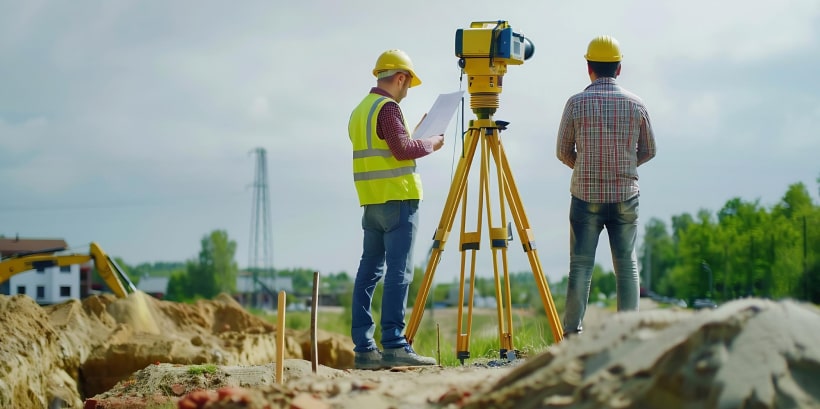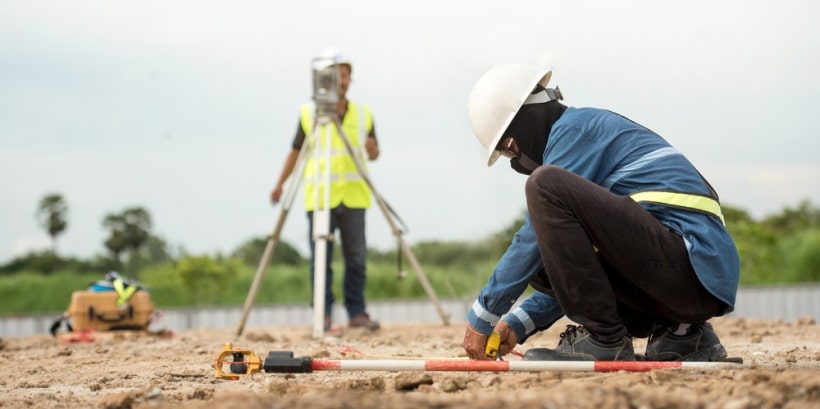Common Pitfalls to Avoid When Buying Cheap Land
Reading Time: 8 minutes
The growing demand for real estate properties in the USA is a prime reason for its spiking prices. However, this spike in land values does not discourage investors from investing in land for long-term gains.
It is no secret that land investment opportunities act as leverage against volatile stock market fluctuations. Thus, from real estate investment, you can earn significantly high ROI, and is also a less risky investment.
However, to make the best out of land investment, there are several dos and don’ts you must remember. Certain misjudgments can backfire and cause you to lose your hard-earned money.
To know what to avoid when buying land and earn significant returns, read this blog till the end.
Top Mistakes to Avoid When Buying Land
If planning a land investment, consider browsing through the points to know what to avoid when buying land. These shall help you proceed with your upcoming land investment plans in an organized manner.

Half Baked Research
This is one of the most common blunders people commit when buying land. Very often, you would come across real estate investors purchasing lands on basis of he said/she said. They do not conduct thorough research before buying, affecting their returns after a certain period. There can be other consequences such as legal, financial, or environmental issues or chances of being scammed. Therefore, rushing the research or not conducting thorough research is what to avoid when buying land.
The scope of comprehensive research involves a background check of the property, environmental, security concerns, and long-term development projects in the neighborhood. Besides these, you must also research the real estate agents’ other projects and ownership documents of the property.

Neglecting Access Issues
This is another mistake on what to avoid when buying land. To shortlist properties for land investment, consider confirming whether the land has any legal access or not. Very often, certain plots of land do not have Right of Way access.
This renders such property unusable. Rushing your purchase decision to buy such land can hamper your plans as their value might not increase significantly with time.

Not Considering Development Cost
The cheap price of land might look tempting, however, rushing the purchase decision solely considering this is another crucial what to avoid when buying a land.
To invest in land, along with the purchase price you must consider adding up the development cost. This is the expense that you would need to undertake to make the land functional and align with your investment goals. This can include building a home, or storage unit, or developing farmland. Not considering these expenses will burden your finances and would be tough to manage in the long run.

Overlooking Environment Restriction
This is another important point from land buying guide tips that you must not overlook during land investment. Properties like flood zones and conservation easements tend to have diverse environmental restrictions and conditions regarding land development. Ignoring them is another what to avoid when investing in land.
Such zones are usually found in sensitive regions, therefore, rash development activities cannot just hamper your project. It can also harm the ecosystem nearby. Therefore, while shortlisting a property, consider making note of these restrictions and plan your investment goals accordingly.

Failing to Plan for Long-Term Holding Costs
As discussed before, land investment does not just involve the purchase price alone, it also involves several additional expenses. These include utility costs such as electricity, water, or gas, insurance, property taxes, debts, and management fees. Ignoring them is another important what to avoid when buying land.
These expenses might cover a very long period or the entire period of your ownership. Therefore, while shortlisting land for sale, your research must include an estimate of expenses that a particular property may cost you. This will help you choose the right property and be financially prepared to bear all expenses. Consequently, taking care of this will not negatively impact your ROI in the long run.

Not Considering Resale Value
Another major mistake investors make during their land survey is not paying attention to a property’s resale value. Having an idea about the prospect of the property in question provides you with an edge while negotiating during purchase.
Factors like location, neighborhood, future development plans by local authorities, security, and accessibility tend to determine the resale value. This shall also impact your ROI in the long run if you ever plan to sell the property.
Thus, not considering the resale value of your shortlisted property is a grave financial mistake and what you must avoid when buying land.

Not Opting for Professional Advice
Going solo is another crucial point that you must consider as to what to avoid when buying land. To make the best use of your land investment opportunity and earn significant ROI, consider opting for expert guidance. This is essential for both seasoned and new investors especially when you are looking forward to investing in an underdeveloped land.
With expert assistance from real estate agents, lawyers, and surveyors, you can rest assured that the ball is always in your court. They will ensure you are making an informed decision with every information about the property. Lawyers can also provide you with legal assistance in understanding the terms and conditions of the seller. This is an important step to ensure the seller is not scamming you.

Bottom Line
To conclude, to ensure you are investing your hard-earned money in a property that perfectly aligns with your investment goals, these above points are what you must avoid when buying land.
Furthermore, if you are hunting for properties online, consider browsing authentic land listing websites like APXN Property. Here, you can find endless options of rural and raw land for investment in USA at competitive rates.
Also, to purchase land and earn significant returns, you must have a clear idea of your finances and land financing options apt for you. In case, you are unable to secure a mortgage loan to fund your plans, no need to delay your investment goals. With APXN Property, you can also search for land options with owner-financing alternatives.
Frequently Asked Questions
Is buying land a good idea?
Land Survey: Overview, Key Types, and Importance
Reading Time: 11 minutes
Land survey is essential for land investment process as it helps you measure and map distinct physical features of the land. This includes land boundaries, elevation, environment impact, and proneness to disasters among others.
So what is land survey and why is it important, this question must brush your mind if you are consider venturing into land investment in near future. Land surveys analyze the land quality in detailed manner to help you make an informed decision.
Like the land investment process, land survey is also an overwhelming process if you are unaware where to start and whom to connect. Nevertheless, with this blog we got this covered for you.
Table of Contents
- What is Land Survey?
- Why are Land Surveys Important?
- What are the Types of Land Surveys?
- Why Might I Need a Land Survey?
- Things to Remember While Conducting Land Survey
- How Much Does a Land Survey Cost?
- Bottom Line
- Frequently Asked Questions
What is Land Survey?
Land survey is an essential step you must conduct while researching different properties for land investment. So, let’s see what is land survey.
A land survey is a process of measuring and mapping the boundaries, features, and ownership of a piece of land. Licensed professionals called surveyors conduct these land surveys. These professional surveyors use specialized equipment and techniques to collect and record accurate data.
Furthermore, land surveys can show the location, size, shape, elevation, and contours of a property, as well as any buildings, structures, utilities, roads, easements, rights-of-way, and encroachments on it.

Why are Land Surveys Important?
Now that you know what is land survey, it is important to dive into its importance. It is crucial to survey land before investment for many reasons, such as:
- Land surveys help establish the legal boundaries and ownership of a property, which can prevent or resolve disputes with neighbors, authorities, or title companies.
- Surveying land for sale before investment provides valuable information for planning, designing, and constructing projects on a property. These include additions, renovations, subdivisions, or developments.
- Surveys for land investments protect the rights and interests of the property owner, buyer, seller, lender, or insurer, by revealing any potential issues or risks that may affect the value, use, or enjoyment of the property.
- Land surveys comply with the laws and regulations that govern land transactions, zoning, permits, and taxation.

What are the Types of Land Surveys?
To delve deeper into what is a land survey, you need to have a comprehensive knowledge of different types of surveys of land.
The points below will take you through the crucial types of surveys for land investments.

Site Planning Survey
Site planning survey is one of the most important land surveys as it looks into combining reports of boundary and topographic surveys. This type of land survey is typically useful for the design phase to plan the layout and utility placement.
Construction Survey
The main purpose of this survey is to guide the construction projects with precise measures. With a comprehensive construction survey drafted by a professional engineer, your land investment will reap wholesome ROI in the long run.
A construction survey is useful to stake our locations for buildings, roads, and other structures during the construction process.
Topographic Survey
Among the different types of land surveys explained, topographical survey plays the role of mapping the physical features of the land area. This involves elevation, slopes, drainage patterns, and water bodies among many more.
This type of survey is essential in the engineering, construction, and architectural processes of land development. The topographical survey also helps us understand the land terrain and to focus on drainage planning.

Boundary Survey
Among the types of methods to survey a land for sale is boundary survey. The crucial purpose of this type of survey is to establish boundaries, property lines, and corners of the property accurately.
This survey is commonly used in real estate transactions, dispute resolution, and building structures near property lines. Thus, a boundary survey is important for a clear understanding of what is land survey.
As-Built Survey
This type of land survey ensures whether a construction project is proceeding or is completed as per the approved layout. Furthermore, As-built survey is mostly used by local government bodies to ensure the construction process aligns with building permits.

Hydrographic Survey
The hydrographic method is another procedure to survey land that is worth mentioning among its important types.
The purpose of a hydrographic survey is to study water bodies in the given map which includes rivers, lakes, and even oceans. This type of survey is crucial for marine navigation and the determination of the depth of water necessary for the construction of bridges and dredging requirements.
Environmental Survey
In today’s time of consistent climate change, environmental survey is necessary type to consider while discussing what is land survey for investment purposes.
The main role of this land survey is to focus on the land’s impact on today’s environment. For instance, it determines whether the land helps sustain a wetland, forest, or vegetation zone.

Mortgage Survey
Under the types of land surveys, this is the most important type for investors planning to purchase land on mortgage. This survey ensures that your shortlisted property does not carry any pending legal or taxation liabilities. The presence of such encroachments in its background poses a hurdle during the mortgage application process.
Why Might I Need a Land Survey?
For a detailed understanding of what is land survey, you must also be aware of why do you need the same before planning any land investment. Land surveys are an essential step that can be used for various purposes, such as:

- Purchase or sale of property: A land survey can help the buyer and seller verify the size, shape, and features of the property, as well as any easements, encroachments, or restrictions that may affect the transaction.
- Mortgage or insurance application: A land survey can help the lender or insurers assess the value, condition, and risk of the property, as well as confirm the legal description and title of the property. To conduct a suitable land survey, you must have an idea on how much land survey cost.
- To obtain a permit or approval: Land survey also helps the property owner obtain the necessary permits or approvals from the local authorities. Therefore it is important for investors to know what is land survey to go ahead with any projects or activities on the property, such as building, renovating, subdividing, or developing.
- To managing or maintain a property: Land survey also assists the property owner to manage or maintain the property. Through land survey, you can get clear and accurate land map of the boundaries, features, and utilities, as well as any changes or improvements that have been made over time.
Things to Remember While Conducting Land Survey
When reviewing a land survey, you’ll want to focus on several key elements to ensure you have a clear understanding of the property boundaries, legal descriptions, and potential issues. Here’s what to look for while considering the benefits of what is land survey for your next real estate investment:

1. Property Boundaries:
- Exact Dimensions: To conduct an accurate land survey, consider checking specific measurements of the property boundaries. This will help ensure the constructions match with property descriptions in your purchase agreement.
- Corner Markers: Consider confirm the presence of any kind of physical markers (e.g., stakes) that would denote the corners of the property.
2. Legal Descriptions:
- Metes and Bounds: Your land survey should include a detailed legal description of the property. (e.g., metes and bounds), this should define the boundaries through landmarks and measurements.
- Easements: Consider identifying any easements (these are rights of others to use parts of the property for specific purposes, like utilities or access roads).
- Encroachments: Look for any form of encroachments, such as structures from neighboring properties that extend onto the land.
3. Zoning and Land Use:
- Zoning Classification: You must consider verifying the zoning classification (e.g., residential, commercial) to ensure the property is suitable for your intended use while browsing on what is land survey.
- Setbacks and Restrictions: Review any setback requirements or building restrictions that might limit where and how you can build.
4. Topography:
- Elevation Changes: For an accurate topographical land survey, consider assessing any significant elevation changes or slopes that could impact construction, drainage, or accessibility.
- Flood Zones: Your land survey must also look into how much your property is prone to floods and water clogging. For this, check if any part of the property is located within a flood zone, which may require additional insurance or building precautions.
5. Utilities and Infrastructure:
- Utility Lines: While considering what is land survey you must also keep this point in mind. To earn significant profits from your investments, consider opting for the location of existing utility lines (water, sewer, electricity) and note where connections will need to be made.
- Road Access: Also, confirm legal access to public roads or any private road agreements that impact access to the property for an accurate land survey for utilities and infrastructure.
6. Potential Environmental Concerns:
- Wetlands: Among the types of land survey, environmental survey is mandatory to identify any wetlands or protected areas that could limit development or require special permits. This can impact the value of your land for the long run.
- Soil Conditions: Furthermore, consider paying attention to soil quality and stability, as this can affect construction feasibility and cost.
7. Surveyor’s Certifications:
- Surveyor’s Seal: You must ensure the survey includes the licensed surveyor’s seal and certification, which guarantees its accuracy and compliance with state or local regulations.
- Date of Survey:
Consider verifying the date of the survey to ensure it’s recent. This will help establish the current conditions of the property.
8. Title and Deed Information:
- Chain of Title: Ensure the land survey matches the title and deed records to avoid legal disputes over ownership of the land in question in the long run.
- Previous Surveys: If applicable, compare the current survey to any previous ones to check for discrepancies or changes. This shall help you make an informed decision with comprehensive knowledge on what is land survey.
By reviewing these elements closely, you can ensure that the land survey provides a clear and accurate representation of the property you’re considering purchasing. You can also opt for a professional assistance to ensure accuracy and make an informed decision.
How Much Does a Land Survey Cost?
While browsing into land surveys and its importance for investment procedures, wondering how much land survey costs is imperative.
While the cost of a land survey varies by the size and complexity of the plot, in general, the price can range from as low as $200 for a simple one-side boundary marking to well over $1,000 for a full property survey. On this note, the worth of what is land survey is subjective and depends on your land properties and size.

Bottom Line
To conclude, this is everything you must know on what is land survey and its importance for land investments. Surveying a land will assist you in gaining thorough knowledge on the land’s properties, flaws, long-term perks and long-term liabilities. With these points, you can conduct a comparative analysis between properties to know which land for sale is the perfect fit for your land investment goals.
To find a professional and licensed surveyor, check out the National Society of Professional Surveyors, which lists members who must adhere to a certain level of education and ethics.



